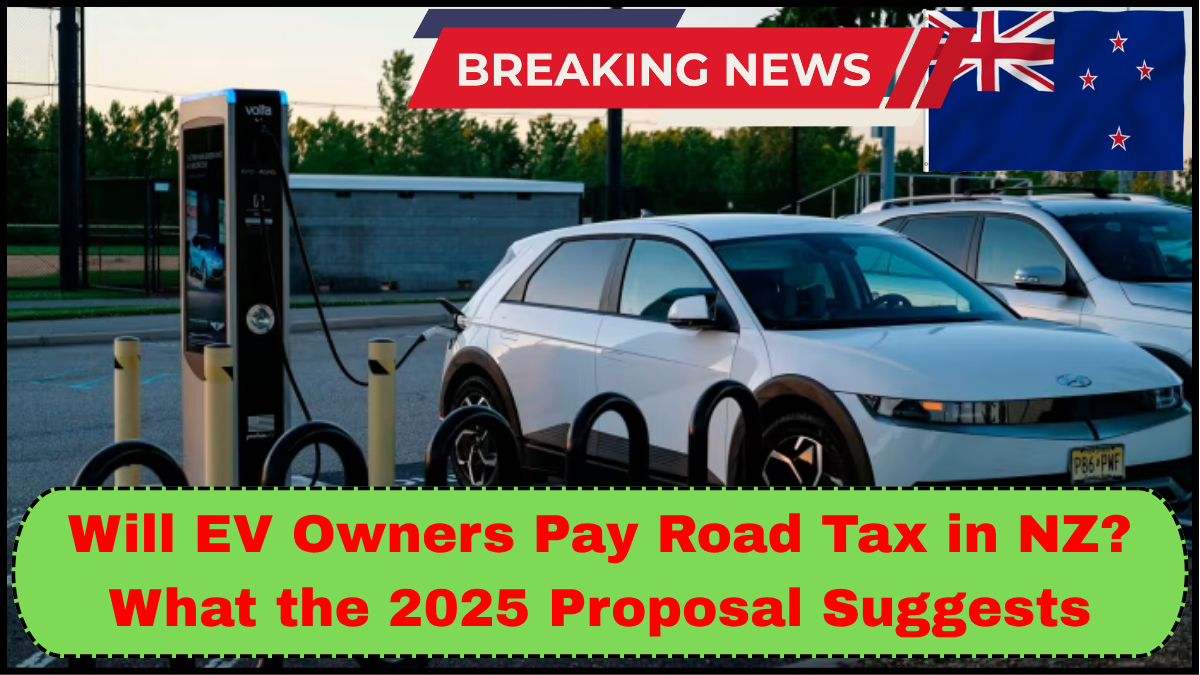As the electric vehicle (EV) market in New Zealand continues to grow, government policy is evolving to keep pace. A major point of discussion is whether EV owners will soon be required to pay road tax—something that internal combustion engine (ICE) vehicle owners have long contributed through fuel excise duties. The 2025 Road Tax Proposal for EVs in NZ aims to address this growing imbalance, and it’s raising important questions about fairness, infrastructure funding, and the future of sustainable transport.
Below, we unpack the proposal, what it means for EV drivers, and how New Zealand plans to balance equity with climate goals.

The Current Situation: How Roads Are Funded in NZ
Currently, road maintenance and infrastructure in New Zealand are primarily funded through fuel excise duties—taxes collected at the petrol pump. Drivers of petrol and diesel vehicles contribute every time they refuel. However, electric vehicle owners don’t pay this fuel tax, effectively giving them a free pass on contributing to the upkeep of roads.
This imbalance has become more significant as the number of EVs on the road increases. As a result, the government has been exploring ways to ensure that all drivers, regardless of vehicle type, pay their fair share toward infrastructure upkeep.
What Does the 2025 Road Tax Proposal for EVs in NZ Include?
The Road Tax Proposal for EVs in NZ—set to take effect in 2025—introduces a new levy on electric vehicles. Rather than applying fuel excise duties, which aren’t applicable to EVs, the government plans to implement a distance-based road user charge (RUC). This system already exists for diesel vehicles in New Zealand and involves drivers paying based on how many kilometers they travel.
Under the proposal:
-
EV owners will pay a per-kilometer rate similar to that charged to diesel vehicle users.
-
The rate will be calculated to reflect wear and tear on roads, helping to ensure all vehicle types contribute proportionately.
-
Plug-in hybrid vehicles (PHEVs) may face a modified rate due to their dual-fuel capabilities.
This new approach aims to level the playing field while still supporting the country’s broader transition to low-emissions transport.
Why the Change Is Happening Now
New Zealand has seen a sharp rise in electric vehicle adoption, driven by government incentives and rising environmental awareness. In fact, EV sales accounted for a growing percentage of new vehicle registrations in recent years.
However, with this growth comes a revenue gap. Fuel excise tax revenues are declining, and without a compensatory mechanism, the funding shortfall could impact road maintenance and safety. The electric car tax (as some are calling the new RUC for EVs) is designed to plug that gap while maintaining the incentive to choose clean transport.
Will This Discourage EV Adoption?
Some fear that a new levy on EVs might slow the transition to greener vehicles. However, the government has stated that the proposed road user charge is not about penalizing EV drivers but about establishing a sustainable funding model for road infrastructure.
EVs will still enjoy significant advantages:
-
Lower running costs compared to petrol or diesel cars.
-
Reduced emissions, helping owners avoid future climate-related penalties.
-
Exemption from certain urban congestion charges (in the future).
Additionally, financial support programs and rebates are likely to continue in parallel, cushioning the impact of any new charges.
International Comparisons
New Zealand is not alone in reconsidering how EVs contribute to public infrastructure. Countries like Australia and the United States have started implementing or discussing similar electric car tax frameworks. For example, Victoria in Australia has introduced a per-kilometer charge for EVs and hybrids. These shifts reflect a global movement toward more equitable funding structures for transport systems.
FAQs: Road Tax Proposal for EVs in NZ
Q1: When will the EV road tax come into effect?
A: The proposed changes are expected to take effect sometime in 2025, though exact dates and final rates are still subject to government confirmation.
Q2: How much will EV owners pay under the new system?
A: While exact figures have yet to be finalized, the charge is expected to align with the current RUC rate for light diesel vehicles, which is around 7–8 cents per kilometer.
Q3: Will plug-in hybrids be taxed differently?
A: Likely yes. Due to their use of both electricity and fuel, PHEVs may have a modified RUC rate to reflect partial use of the fuel excise system.
Q4: Is this considered an “electric car tax”?
A: Technically, it’s not a tax on owning an electric car but a road user charge. Still, many refer to it informally as an electric car tax because it imposes a new cost on EV drivers.
Q5: Will government EV subsidies continue?
A: Current signals suggest that incentive programs will remain in place to support EV uptake, even as funding models evolve.
click here to learn more